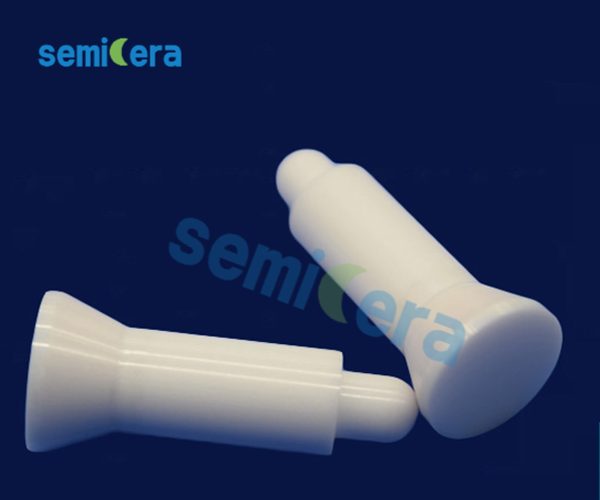It is understood that zirconia ceramics is a new type of high-tech ceramics, in addition to precision ceramics should have high strength, hardness, high temperature resistance, acid and alkali corrosion resistance and high chemical stability conditions, but also has a higher toughness than general ceramics, making zirconia ceramics are also used in various industries, such as shaft seal bearings, cutting components, molds, auto parts, and even can be used for the human body, For example, in the field of consumer electronics in artificial joints, zirconia ceramics are close to sapphire because of their hardness, but the total cost is less than 1/4 of sapphire, their folding rate is higher than that of glass and sapphire, the dielectric constant is between 30-46, non-conductive, and will not shield the signal, so it is favored by fingerprint recognition module patches and mobile phone backplates.
1, from the point of view of chemical properties:
zirconia ceramics show absolute inertia, acid and alkali resistance, no aging, far more than plastics and metals.
2, from the perspective of communication performance:
the dielectric constant of zirconia is 3 times that of sapphire, the signal is more sensitive, and it is more suitable for fingerprint recognition patches. From the point of view of shielding efficiency, zirconia ceramics as non-metallic materials have no shielding effect on electromagnetic signals, and will not affect the internal antenna layout, which can be convenient for integrated molding.
3, from the point of view of physical properties:
ceramics as a structural part of consumer electronics has a strong vitality. Especially for zirconia ceramics, its optical communication, industry, medical and other fields have been proven to be extremely excellent structural materials, into the field of consumer electronics, but its cost reduction, brittleness improvement after the natural result. From the hardness point of view, the Mohs hardness of zirconia ceramics is about 8.5, which is very close to the Mohs hardness of sapphire 9, while the Mohs hardness of polycarbonate is only 3.0, the Mohs hardness of tempered glass is 5.5, the Mohs hardness of aluminum magnesium alloy is 6.0, and the Mohs hardness of Corning glass is 7.
Post time: Jul-14-2023

